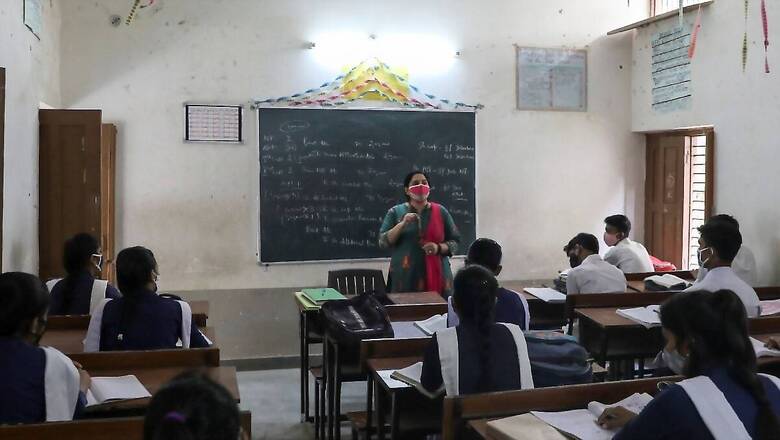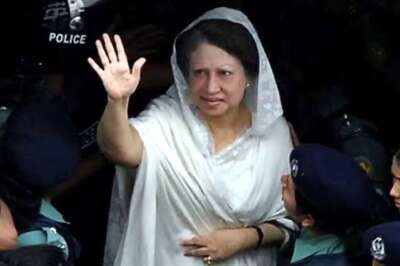
views
The NCERT’s top brass pegged as a “case of oversight" the “silent" deletions of several references to Mahatma Gandhi, the RSS, Gandhi’s assassin Nathuram Godse and 2002 Gujarat riots from the new political science, history and sociology textbooks for Classes 11 and 12. These changes were directly introduced in the reprinted books for the 2023-24 academic session, without first putting them on an official ‘list of rationalised content’ that the council released in June 2022.
“The references in the new textbooks have been dropped as per the rationalisation process and these not being put on the list might be a case of oversight," Prof Dinesh Prasad Saklani, director of the National Council for Educational Research and Training (NCERT), told News18. He said the paragraphs were dropped from the textbooks in line with the implementation of the National Education Policy (NEP) 2020.
Key deletions from chapters include references such as – ‘Dislike of Hindu extremists for Mahatma Gandhi’s pursuit of Hindu-Muslim unity’; the ban on the Rashtriya Swayamsevak Sangh (RSS) after Gandhi’s assassination; Godse’s identity as a ‘Brahmin from Pune’; and ‘ghettoisation of communities’ in context of communal violence, including that of 2002 Gujarat riots.
These deletions do not feature in the ‘list of rationalised content’ released by NCERT in June 2022, and the changes were directly introduced in the new books without any official notification. In June last year, NCERT rationalised the syllabi of Classes 6 to 12 to reduce the burden on students due to the Covid-19 pandemic. Changes made last year included removal of all references to Mughal courts, the Emergency, 2002 Gujarat riots, Cold War and the Industrial Revolution. Some Dalit writers were also dropped from a Class 7 textbook.
A comparison of the text in a chapter titled ‘Mahatma Gandhi’s Sacrifice’ in the Class 12 political science book, Politics in India since Independence, from this year and last year shows that references to Gandhi – ‘He was particularly disliked by those who wanted Hindus to take revenge… Gandhi’s steadfast pursuit of Hindu-Muslim unity provoked Hindu extremists so much that they made several attempts to assassinate Gandhiji…’ – are missing in the reprinted version.
Another reference in the same chapter, which talks about how Gandhi’s death had a magical effect on the communal situation in the country and led to a ban on the RSS, has also been deleted. The deleted paragraph reads: ‘The Government of India started a crackdown on organisations that were spreading communal hatred. Organisations like the RSS were banned for some time’.
Similarly, the third and last reference about the 2002 Gujarat riots in NCERT textbooks has also been dropped from the Class 11 sociology textbook Understanding Society, under a sub-topic ‘Social change and social order in rural and urban society’. It talks about how sociocultural identities such as class, religion and ethnicity often segregate residential areas citing riots, including the “most recent in Gujarat" led to “ghettoisation of communities".
The paragraph deleted by NCERT reads: ‘…For example, in India, communal tensions between religious communities, most commonly Hindus and Muslims, results in the conversion of mixed neighbourhoods into single-community ones. This in turn gives a specific spatial pattern to communal violence whenever it erupts, which again furthers the ghettoisation process. This has happened in many cities in India, most recently in Gujarat following the riots of 2002’.
Read all the Latest India News here

















Comments
0 comment